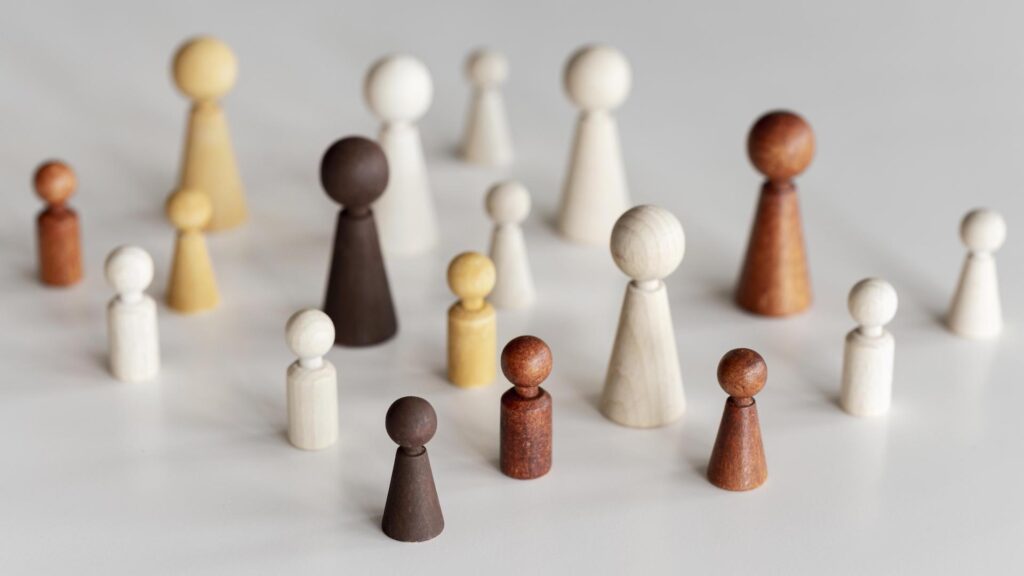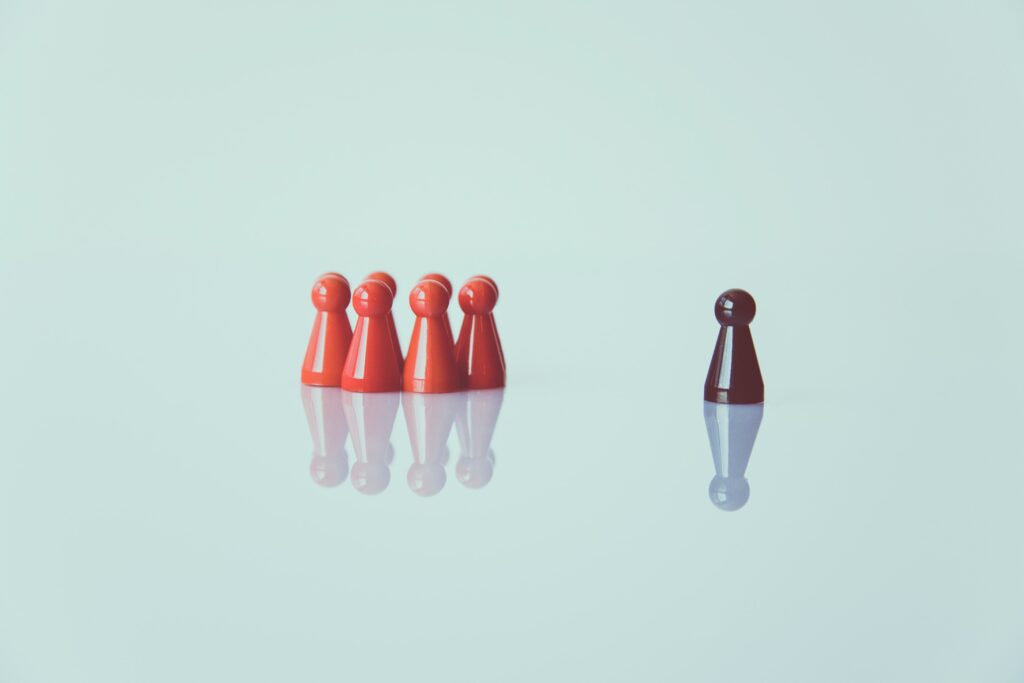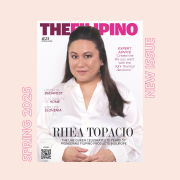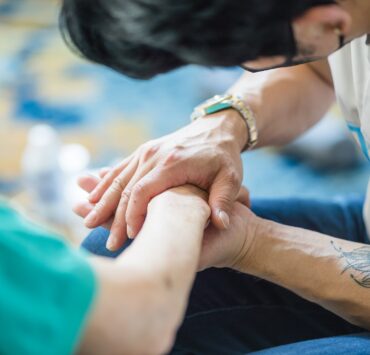Film maker Berjer Capati argues that before we know if we are being discriminated, we must first understand the culture of our new countries.
I was walking in the outskirts of Leon, minding my own business, all jolly and without a care in the world. Little did I know that it would be my first time to experience racial discrimination in my first year in Spain, my first outside the Philippines. I was in my early twenties and at that time, why would I be conscious of these sorts of things? To that young and naïve version of me, the world was a rose-petaled stroll.
A car passed by and there were these two local boys smiling at me. I thought they were being friendly. At that time, I really stood out in this small city. How many brown guys could there be in this place? Most stares I got there were usually out of curiosity or wonder. The locals should be used to foreigners; after all, Leon es un destino universitario.
The car slowed down and the passengers called out to me and said “Chino, chino de mierda…. ¡púdrete!” (Rot in hell, chink!) These words were masked with their smiles and again, I thought, they were just horsing around. And they sped away in their car.
I would meet my Spanish friend Alfonso later on and I would mention this casually, like “Yeah, can you believe that? So funny, no?” and his reaction was to look away and say, “Man, those things never happen to me!” And no, it wasn’t funny.
Believing in the niceness of people
Through the years, I would recall similar situations, some in León and some in Madrid. I vividly remember that weekend in León when you could still smoke indoors. I was with my non-smoking friends and classmates and I fancied a bit of cigarette and I saw this woman who was having a drag of her own. I went to her and asked for a ziggy. She looked at me and sternly said “No. (Followed by a short yet dragging pause) Lo siento pero soy asquerosamente franca.” (I’m sorry but I’m disgustingly frank.) I was taken aback. She could’ve easily said no.
I was too surprised to even process the situation and I remember that I only said “vale” and turned back to my friends again. Was that woman just high? Or drunk? Or was she just plainly disgusting (like she described herself to be). My question is, would she have said the same thing if I were black? Or Spanish? Or a fellow woman? Or if I were Brad Pitt? These are questions that now, I don’t want to even process in my head, now that I’ve been here a while now and more exposed to Western culture.
You would never know that you are being discriminated upon unless you learn more about the culture of the place that you are living in. It took years to process this idea and arrive at this conclusion. I guess it is because I believe in the niceness of people.
But receiving a discriminatory attack actively or passively can backfire unpleasantly. It can make you an angry or bitter foreigner and I don’t want that to be my case. It is a fault to ignore it. I used to be so slow in getting the hints of racial slurs. I realized that the reason why I get served take out coffee almost immediately was actually to get rid of me first (?).
I deliberately leave this question mark sign because that’s what it is: it leaves you still questioning things even after the years have passed. I thought I was special, but then I realized in time, what reverse discrimination was. It was one of those fancy m’as-tu-vu places.
One day, I decided I had extra time to sit down and have my cup quietly but the usual instant service didn’t materialize. The workers there were ignoring me! I work in the hospitality industry as well! It was unacceptable and then it dawned to me; I looked around and suddenly felt out of place.
I had an Australian coworker in Ibiza. I worked there for two summers and I remember her commenting about my hands. Just a simple and seemingly innocent comment. “Oh, how small they are!” She raised her hand and our palms touched and made the comparison. I think she mentioned or suggested something like: with her bigger hands and taller stature; she would be a better worker than I was. And then, she concluded, and this, I remember very, very well;
“Yeah, white is better. But Filipinos make very good waiters.”

We would work together for the next three months after that. And the version of myself at that time, wouldn’t realize that those labor banters that seem to be innocent are actually, racial discrimination.”
Categorizing and pluralizing
We are all exposed to these kinds of situations, after all, everything starts on the surface and we know what our surfaces look like. The dangerous thing that happened after being exposed to these kinds of situations for me and then being aware of it was that I, too, started to indirectly discriminate. I started to grow a certain dislike for my features. I started to feel inferior and created these levels of inferiority and started categorizing some people; who are less, lesser and worse. I pluralized people: I believed all Aussies are like that. I tried to compensate by exerting an extra effort to stand out and be better. BUT FOR THE ERRONEOUS REASONS.
I felt like I couldn’t make a mistake. People will think all Pinoys are like me and that I had this savior mission to give us all a good image. “You have to behave, otherwise everyone would think that lahat ng Pinoy ay ganyan.” My motivations to be a better Pinoy expat were faulty because one way or the other, some people will still think less of us no matter what. I really worked my way out to dominate the language.
Having an accent is one thing but conjugating your verbs incorrectly or declining the nouns wrong gives you away and you become another foreigner, a target for questions like “¿De dónde eres? (Where are you from?) and you tell them “I’m from the Philippines.”: This telephone conversation would be followed by a long breathy pause on the other line and the words “Uff, lo siento. I can’t rent you the room.”

Who do you represent?
These are things that you can’t control. Some people have not seen the world. Some people have worlds that are small. And we, aliens to these small worlds, are dayo, displaced and more informed and should know better. But I am finding a very hard time to end this article without sounding like I have the answer. I DON’T. Be warned, dear reader. I don’t provide the answers. But what I can share is that I’ve lessened the futile grip to that idealized desire to be a good Pinoy abroad. I do things for myself and I pour my respect to myself. I may be very brown but I now wear that brown so well.
I remember attending a Masterclass in SAE three years ago. There was an Italian DJ who was invited to talk about his work and I am always fascinated by the creative processes of other artists. During the Q&A part, I cheesily asked him about what advice he could give to an Asian in Barcelona who wanted to make his way around the world. I would mention how hard it had been for me to get ahead. And he said, “Have you seen that Dom something-something movie with Jude Law? What you don’t have is actually what you have. Being Asian in Barcelona is actually the thing that is going to help you get ahead. Use that.”
Yeah, pour that respect to yourself. Lately, I would hear comments like “You, Filipinos are so nice and smart…. and hard-working.” I will comment, “No, I am nice and smart and hard-working. Not all Filipinos are or can be like me. There are Filipinos who are rude, and stupid and lazy and in any combination as there are nice women, racist women, racist Aussies, non-racist Aussies, some intelligent Arabs and non-intelligent Arabs, pleasant and unpleasant homosexuals, rude and polite old people, etc.”
At times, polite people can be having a hard time and suddenly become rude. I, too, can lash out and be crass. But never reduce us or those people into that one single moment. It is not fair. That is the true discrimination: the reduction of people into that one moment that their paths cross with yours. Keep that respect. So far, it is the better option for me because I realized that internalized self-respect, in time, is cleansing and eventually would externalize. But from time to time, I always ask myself: “Who do you represent?”.




